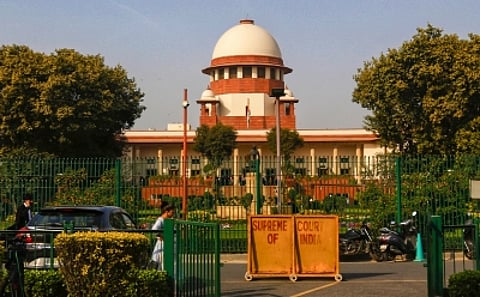
New Delhi - The Supreme Court has granted relief to Sadhguru's Isha Foundation by preventing the Tamil Nadu Pollution Control Board (TNPCB) from taking coercive measures against the spiritual organization's yoga facility in the Coimbatore hills.
A two-judge bench comprising Justice Surya Kant and Justice N.K. Singh ruled against sealing or demolition of the Yoga Centre on Velliangiri hills. The dispute centered on allegations that the Foundation had constructed facilities without obtaining required environmental clearances about a decade ago.
While offering protection to the existing structures, the Court explicitly directed the Foundation to obtain proper environmental permissions for any future expansion projects. "It goes without saying that if there is any need for expansion in future, the Respondent no.1 (Isha Foundation) will seek prior permission of the competent authorities," the bench stated.
The Court's decision partly hinged on the classification of the Yoga Centre as an educational institution, which entitled it to certain exemptions from environmental clearance requirements. Additionally, the Court noted the TNPCB's two-year delay in challenging a previous Madras High Court order that had ruled in favor of the Foundation.
Senior Advocate Mukul Rohatgi, representing Isha Foundation, successfully argued that construction at the site began in 1994, predating the Central government's Environment Impact Assessment Notification of 2006. The Foundation also maintained that the facility primarily functions as a Yoga Centre "engaged in promoting mental development," qualifying it as an educational institution exempt from mandatory environmental clearances.
The TNPCB had issued a show cause notice to the Foundation in November 2021, alleging unauthorized construction without required environmental permits. The Madras High Court had previously quashed this notice, a decision the pollution board unsuccessfully attempted to overturn.
While ruling in favor of the Foundation in this specific case, the Supreme Court clarified that its judgment should not be treated as a precedent for regularizing illegal constructions in other matters.
You can also join our WhatsApp group to get premium and selected news of The Mooknayak on WhatsApp. Click here to join the WhatsApp group.